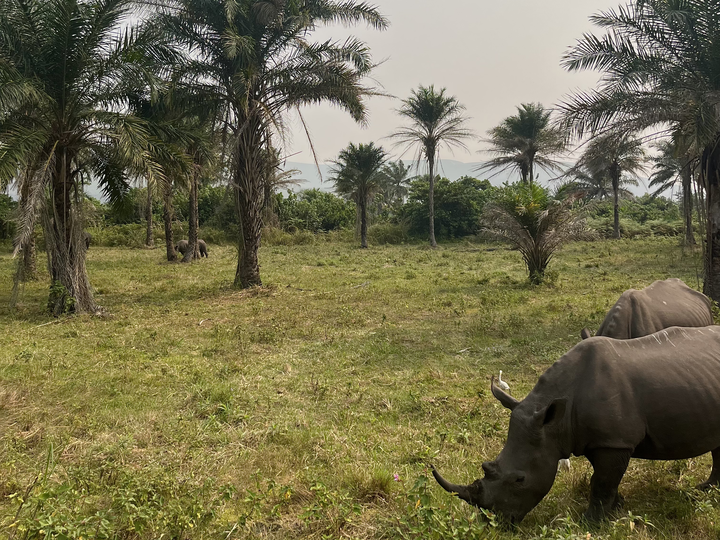This summer, I had the privilege of visiting my family in the Democratic Republic of the Congo for the first time. We stayed in Kinshasa for the duration of our trip, but part of me wished to see what was beyond the capital city. Deep down, my true desire was to see the nature the country has to offer, the little pockets of life that embody what the Cradle of Humankind could have resembled without Western colonialism. Taking time in nature has always been of great importance to me. But after my trip, I realized that almost all of the outdoor recreation and education I’d received––outside of that received from my own family––along with the value I found in nature had come from white-dominated spaces.
Kinshasa is a fantastic city, and I can’t wait to go back. But I was struck by the lack of green spaces. The government is currently prioritizing other issues like preventing Rwandan aggression, strengthening the economy, and unlinking the country from Western aid and implication. These concerns, paired with the city’s foundations of Belgian colonial infrastructure, explain the limited focus on green urbanism and environmental liberation. However, the busyness of the city made me think of my love of nature, and how, while only living in major cities my whole life, finding some refuge among flora has consistently bolstered my mental health. The connection with nature and the sense of community that comes with it has led me to meet like-minded individuals and opened my mind to new perspectives and realities. I continued to wonder if exposure to green spaces could help alleviate the stress of living in a busy city and offer even more health benefits to Kinshasans. And perhaps, it would be able to unite a people and further foster community, something that is key to decolonization, by placing the drivers of change in the hands of locals.
During my stay, I had the chance to drive outside the city centre to visit a privately-owned park. There, I was faced with some of the most breathtaking natural scenery that I had ever seen. After seeing the mountainous terrain paired with agba trees and animals roaming free within the lush plant life, my cousins who have lived in Kinshasa their whole lives were in equal awe, expressing that they had never encountered such natural beauty either. At that moment, I thought of how unfair it was that they had never had the chance to see the nature of their own country. A lack of exposure to nature for people of colour is not a new phenomenon, and research shows that the majority of people who participate in outdoor activities and recreation are white middle-class men who live in affluent areas.
This experience led me to recall my summers as a kid at a sleep-away camp in Northern Ontario, and later working there as a counselor. I pondered the cherished canoe trips I took with friends in my teens and the numerous hikes I’d enjoyed with my family. The feeling of being free and connected to nature characterized my childhood, and gave me many chances to feel completely reflective and at peace. My trip this past summer showed me how much of a privilege and rarity this is.
People of colour in Canada are three times more likely than white people to live in places that have no immediate access to nature. This inaccessibility shows how legacies of exclusion due to colonialism continue to plague communities of colour. Particularly in Canada, marginalized communities are unable to access the trails and activities that exist on the already stolen lands of Indigenous peoples. Why is it that mainly white people get to bear the benefits of spending time in nature?
My experience in the Democratic Republic of the Congo and my life in Canada reminds me that people of colour worldwide continue to be excluded from spaces stolen from them in the first place. Black communities, Indigenous peoples, and people of colour need to reconnect with nature, but the objectives of this go beyond just enjoying the environment: All marginalized people’s cultural identities, communal health and healing from intergenerational trauma depend on returning to nature, and the time to start is now.








